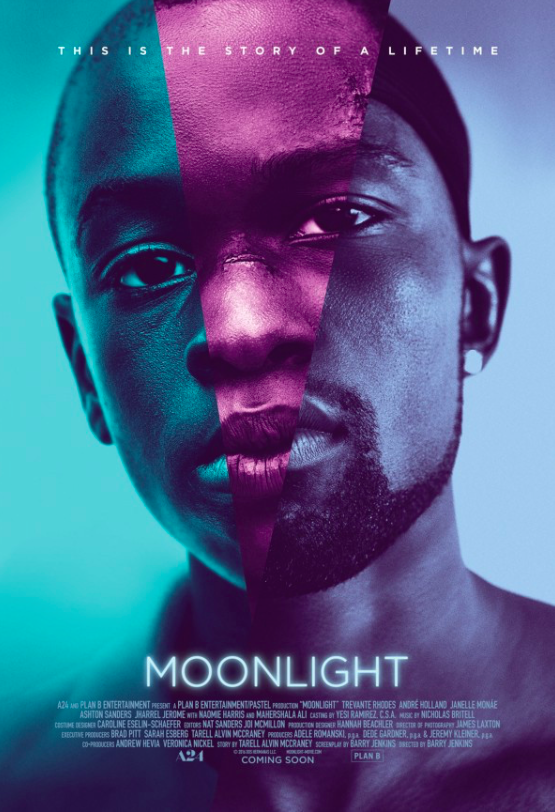Meera Srinivasan, Reporter
@meerascourant
Moonlight, an account of a young boy’s life living in a poor neighborhood as gay, presents an even deeper look into drug addiction, school violence and the harsh reality that is life. The main character, Chiron, whose relationship with his mother worsens throughout the movie, grows a father-son like relationship with Juan, the drug dealer who began Chiron’s mother’s’ addiction.
What is unprecedented about the way Barry Jenkins peels back this relationship is how truly personal he makes the film. While watching, it almost feels as if you are right there with them in the gut-wrenching scene when Chiron asks Juan why he dealt his mother drugs. The impeccable camerawork in each and every scene puts the viewer in the characters shoes so that the memory of the film resonates with the viewer long after it’s over.

An interestingly highlighted ideal throughout the movie is the nature of manhood and, additionally, what society has classified it as. Jenkins provokes questions about manhood that have never been fully included in other films. How strong are you supposed to be? Are you allowed to cry? What makes you important to society?
Barry Jenkins doesn’t use well-rounded characters nor does he twist the story to give a happy ending. Instead, Moonlight’s characters are raw and inquisitive who struggle with issues not presented in normal life. What may seem like a profile on two widely different people is, in actuality, an in-depth view of humanity.
Watching Moonlight will change you in every way that a movie can. It compels you to forget your own life and transport yourself into another. It will make you realize the impact of drug abuse and harsh reality but, also, tell you a story about young lives everywhere. Moonlight shines light on the issues that matter most both in the United States but also, in humanity.

